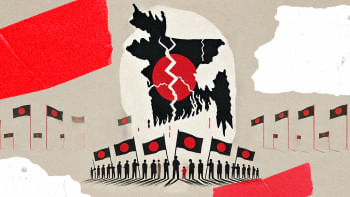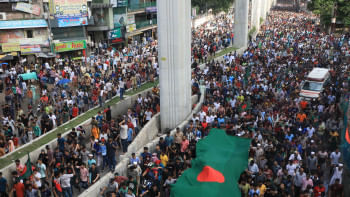Echoes of 2024: A year of conflict, resilience and change

"In the midst of darkness, light persists. In the midst of death, life persists. In the midst of untruth, truth persists."
—Mahatma Gandhi
As 2024 ends, with a week-long festivity and a lull in activity in many places, I find myself introspecting and reflecting over the past year. While annual reflection is a tradition for many, this is the first time I am sharing my thoughts openly, and for compelling reasons.
This year has helped us move past the painful memories of the Covid pandemic, yet without the solace we yearned for. The ongoing war between Russia and Ukraine intensified, and as if that was not enough, a significant new conflict erupted between Israel and Hamas in October 2023 and continued throughout 2024. The year began under the shadow of these global conflicts and witnessed further turmoil, including significant unrest in neighbouring Myanmar.
Additionally, more than 60 elections were held worldwide, many accompanied by political and civil strife, including one in Bangladesh. The power and influence of youth once again came to the forefront, driving political change and sparking global discourse.
We cycled through feelings of euphoria, fear, anguish, hope, inspiration and anxiety, sometimes all at once. As 2024 concludes, it is hard to pinpoint exactly what our emotional state is. When 2022 ended, it brought a sigh of relief with the decline of Covid. In contrast, 2024 closes with ongoing conflicts, polarisation, environmental crises, policy stagnation, controversial leaderships, civil unrest, widening economic disparities, dwindling humanitarian aid, and the persistent challenges of hunger and food scarcity. The political shifts and changing narratives of 2024 raise more questions than answers.
One stark example of global failure this year was COP29, which failed to secure adequate financial commitments for climate justice. Vulnerable nations like Bangladesh gained nothing from this massive effort of international negotiations, casting doubt on the very purpose of such annual conferences. Bangladesh faced five climate emergencies in 2024, including Cyclone Remal and massive floods that displaced over half a million people. These disasters left communities grappling with loss of livelihoods, damaged infrastructure, and prolonged recovery efforts, highlighting the urgent need for more robust global and local responses to climate resilience. Yet, the global response fell short of what was needed.
Civil unrest defined much of 2024, with protests erupting in Venezuela, Kenya, Bangladesh, and most recently, South Korea. In many cases, demonstrators demanding civil rights were met with disproportionate violence. In Bangladesh, hundreds of lives were lost—among them students, children, and workers—while many others remain injured, enduring a painful existence after speaking out against authoritarian rule. This movement, described by some as a "second liberation," holds the potential for revolutionary change, contingent on future political and social reforms. However, uncertainty looms for many in Bangladesh as they grapple with insecurity, livelihood challenges, and limited growth opportunities.
The 2024 floods were among the most devastating in recent history, affecting millions of lives with unprecedented intensity. In response, youth, communities and people from all stages joined hands and supported affected communities. This was admirable.
In 2024, the business world witnessed the continued rise of unicorns and billionaires, with wealth accumulating at unprecedented rates. However, this growth brought little meaningful change for the powerless. Despite a global economic growth rate of 3.1 percent, over one billion people remain trapped in acute multidimensional poverty, underscoring systemic failures that widen the gap between rich and poor. While digitalisation and technological integration have transformed many sectors, their benefits have yet to fully reach those living in poverty.
As 2024 ends, the limitations of the traditional humanitarian aid model are clear. To create lasting impacts for the disadvantaged, we must embrace entrepreneurial approaches, review existing frameworks, and develop sustainable strategies with consistent resource flow.
I question our engagement with the new generation on social change. Though equipped with technology and social media, they face unprecedented challenges. Are they prepared for an equitable future? Are we investing enough in their potential? These questions linger as we enter 2025.
Finally, as changemakers and development practitioners, we must rebuild trust, demonstrate accountability, and reconnect with people's aspirations. Over time, we lost touch with communities, but now is the moment to correct course and foster collective ownership of our work. As 2025 begins, let us invest in hope, positivity and collaboration to rebuild lives and create a more equitable, just world. It won't be easy, but it is possible—and essential.
Ashish Damle is the country director of Oxfam Bangladesh.
Views expressed in this article are the author's own.
Follow The Daily Star Opinion on Facebook for the latest opinions, commentaries and analyses by experts and professionals. To contribute your article or letter to The Daily Star Opinion, see our guidelines for submission.

 For all latest news, follow The Daily Star's Google News channel.
For all latest news, follow The Daily Star's Google News channel. 











Comments